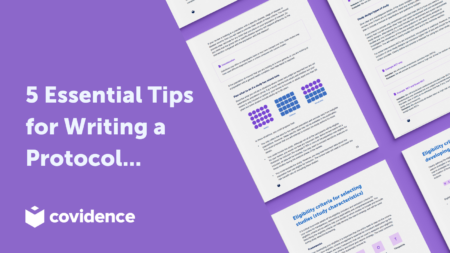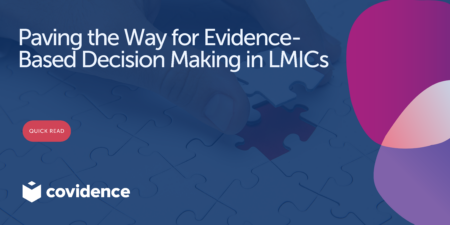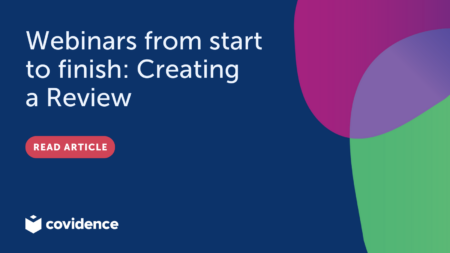Top tips from ‘A Practical Guide: Data Extraction for Intervention Systematic Reviews’
Welcome to our blog series on Data Extraction!
Embarking on a systematic review journey requires a strategic approach to data extraction. To help you get started, we have distilled essential insights from internal experts, user communities, and authoritative sources like Cochrane and PRISMA. In this blog, we present our top 5 tips for efficient and effective data extraction taken from our latest ebook, providing a concise model for researchers seeking professional excellence in their systematic review process.
(You can find more detail on each tip by clicking on the section links. You can also download the data extraction ebook at the bottom of the page).
Tip 1: Follow a Data Extraction Framework:
At the core of a successful systematic review is the adoption of a structured approach, and a data extraction framework is instrumental in achieving this. Frameworks such as PICO(T), are systematic, organized and not only enhance reliability and transparency but also contribute to the efficiency of the review process, supporting the validity and credibility of the findings.
Tip 2: Plan Ahead:
Meticulous planning is a must. It’s important to plan your data extraction approach before diving into the process. This proactive step minimises the need for rework, addresses unforeseen circumstances, and mitigates uncertainties that may arise during the review. A well-thought-out plan sets the stage for a smoother and more successful data extraction process.
Tip 3: Pilot the Template:
Piloting the template before full-scale data extraction begins is also vital. This practice not only saves time but also ensures that the entire team is well-acquainted with the template components. By identifying potential issues early on, the likelihood of template edits during extraction is minimised, subsequently reducing the time spent re-extracting studies or cleaning data. This streamlined approach enhances the overall efficiency of the review process.
Tip 4: Extract the Right Amount of Data:
Effective data extraction is an art that we encourage researchers to master. It involves extracting all relevant data while avoiding unnecessary information that may impede the analysis. Striking this balance ensures that your analysis can be completed without the need to continually refer back to original sources. Discerning between crucial and non-essential data is a reliable way to streamline the workflow.
Tip 5: Communicate Regularly & Keep a Log for Reporting Checklists:
Communication is a cornerstone during the data extraction phase. Regular updates within the team ensure a shared understanding of the processes and early identification of potential issues requiring protocol or template amendments. We recommend keeping a comprehensive log of communication, decisions, and processes during data extraction to facilitate the completion of checklists, often required by journals during manuscript submission.
Summary
Our top 5 tips for data extraction serve as a professional and concise guide for researchers navigating the intricate landscape of systematic reviews. By incorporating these insights into your approach, you can enhance the reliability, transparency, and efficiency of your systematic review process, ultimately contributing to the credibility of your findings.
Download ‘A practical guide: Data Extraction for Intervention Systematic Reviews’ below for a detailed and comprehensive exploration of data extraction.
Don’t forget to share this blog with friends or colleagues and on social media


